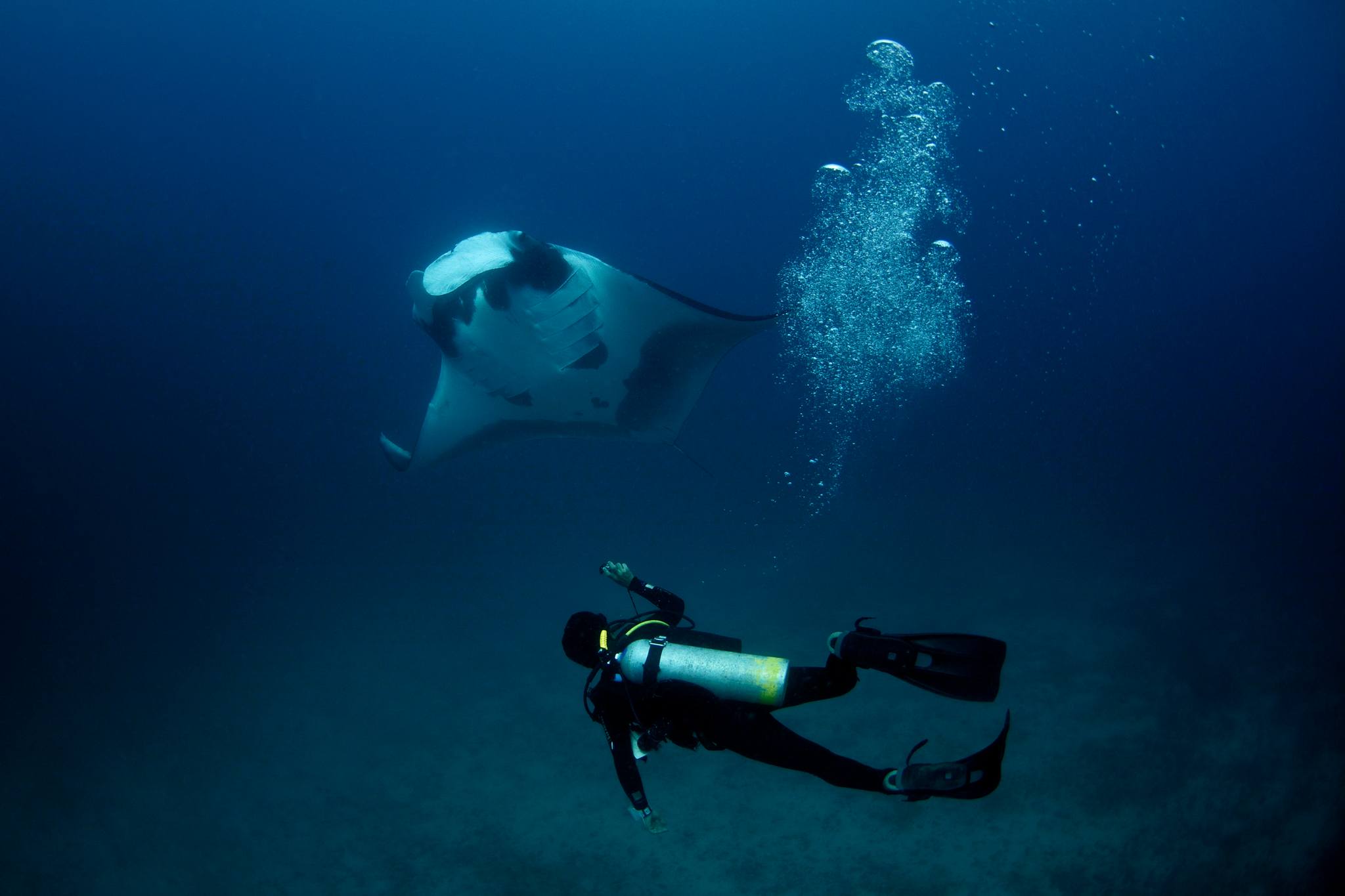
BOSTON, MASS. (July 2024) – For 25 years, the New England Aquarium’s Marine Conservation Action Fund (MCAF) has supported community-based projects working to improve the health of the ocean and ocean animals —such as endangered sharks, sea turtles, dolphins, and manta rays—in more than 60 countries. By investing over $1.8 million in more than 230 projects, MCAF has been able to support community leaders in achieving national protection for giant manta rays, creating a shark sanctuary, constructing a sea turtle hospital, expanding monitoring of various species, and pioneering solutions to pressing conservation issues worldwide.
“The powerful idea behind MCAF is that community leaders around the globe are working on small scale, local projects in their countries and making a major difference in saving at-risk marine species while contributing to the overall global health of our ocean,” said MCAF Director Elizabeth Stephenson. “While local leaders who are closest to the issues are best positioned to develop long-term solutions in collaboration with stakeholders, only a tiny fraction of funding that supports ocean conservation goes to locally run organizations. MCAF works to ensure that local leaders and their organizations have the funding and resources they need to spearhead conservation initiatives over the long term.”
Among some of the projects that have yielded high impact results in the past 25 years are:
- MCAF Fellow Andrés López and Project Leader Ilena Zanella, co-founders of Misión Tiburón, spearheaded efforts that led to the declaration of Costa Rica’s first shark sanctuary in 2018. MCAF has helped support their research, conservation, and outreach work since 2010.
- MCAF Fellow Kerstin Forsberg, founder/director of Planeta Océano, led the successful community-based effort to achieve national protection for giant manta rays in Peru in 2016. MCAF has helped support Forsberg’s research on shark and ray fisheries and outreach with fishers since 2012. She is also working with the New England Aquarium’s Anderson Cabot Center for Ocean Life scientist Ryan Knotek to analyze and map manta sightings and fisheries data.
- MCAF Fellow Tomas Diagne has been working to save threatened and endangered sea turtles in Senegal for more than 25 years. MCAF helped support his work on the country’s first marine animal stranding network and his efforts to create the first sea turtle rescue and rehabilitation hospital, which is under construction now.
- MCAF has also helped to support the work of Asha de Vos with blue whales in Sri Lanka; of Daniel Fernando with sharks and rays in Sri Lanka; and of Florencia Vilches with southern right whales in Argentina.
- MCAF support helped launch a marine species monitoring network in Haiti that led to new discoveries for critically endangered oceanic whitetip sharks.
MCAF provides small grants of up to $12,000 for community, on-the-ground projects and leaders. Over the years, the program has expanded to invest and support the work of 17 global fellows who receive financial, technical, and professional resources to help support and sustain their organizations. Through two-way mentoring, knowledge exchange, and community building the fellows share their expertise and best practices in effective and inclusive conservation.
“MCAF started out focusing on rapid turnaround funding for urgent issues and seed funding to launch new projects and generally only funded projects one time,” Stephenson said. “Through listening to and learning from the community the program serves, we recognized the importance of supporting projects and leaders over the long term and in a multitude of ways that extend beyond grantmaking.”
Florencia Vilches speaks to the impact of MCAF on her work in Argentina: “Thanks to MCAF’s sustained support, I now coordinate a team of four local female researchers, and I lead a Citizen Science Project to integrate southern right whale photos taken by whale watch operators…. Hundreds of new whales were added to the catalog and hundreds of new re-sights were added to the live histories of known whales, some of which we hadn’t seen for decades.”
After MCAF’s first decade, the program shifted to only supporting projects in low- to middle-income nations and more recently to only supporting leaders who are from the countries where they are directing the work. “Supporting local leaders who know the issues, the culture, the language, and the communities is the best practice for advancing the intersecting goals of ocean conservation and equity and for achieving lasting outcomes,” Stephenson said. Through supporting local leaders, MCAF strives to supplant the problematic practice of parachute science with equitable approaches that lead to lasting and effective ocean stewardship.
“In a field where parachute conservation is rife, this community is an excellent reminder of the power of being local to drive real change that benefits the species we care for, their habitats, and the communities that depend on them,” says MCAF Fellow Dr. Asha de Vos.
Some of the recently funded projects are:
- Amigos de las Tortugas Marinas using a drone with a thermal camera to identify and protect common nesting grounds of endangered leatherback and hawksbill turtles in Puerto Rico.
- Elasmobranch Project Indonesia conducting social research, BRUV (Baited Remote Underwater Video) surveys, and community engagement to preserve one of the last protected populations of giant guitarfish in the northern Java Sea.
- Comunidad y Bioversidad (COBI) working with local fishing communities to develop a tool that allows fishing cooperatives in Mexico to make informed decisions regarding adaptation strategies to climate change.
“As we look back on 25 years, it’s been an honor to have been able to support such a dynamic, creative, and successful group of committed local leaders in countries all over the world,” Stephenson said. We look forward to continue learning from this global community of leaders whose work is vital to the health of marine species, habitats and all who depend on our interconnected ocean.
MEDIA CONTACT: Diana Brown McCloy, diana@teakmedia.com; 978-697-9414
